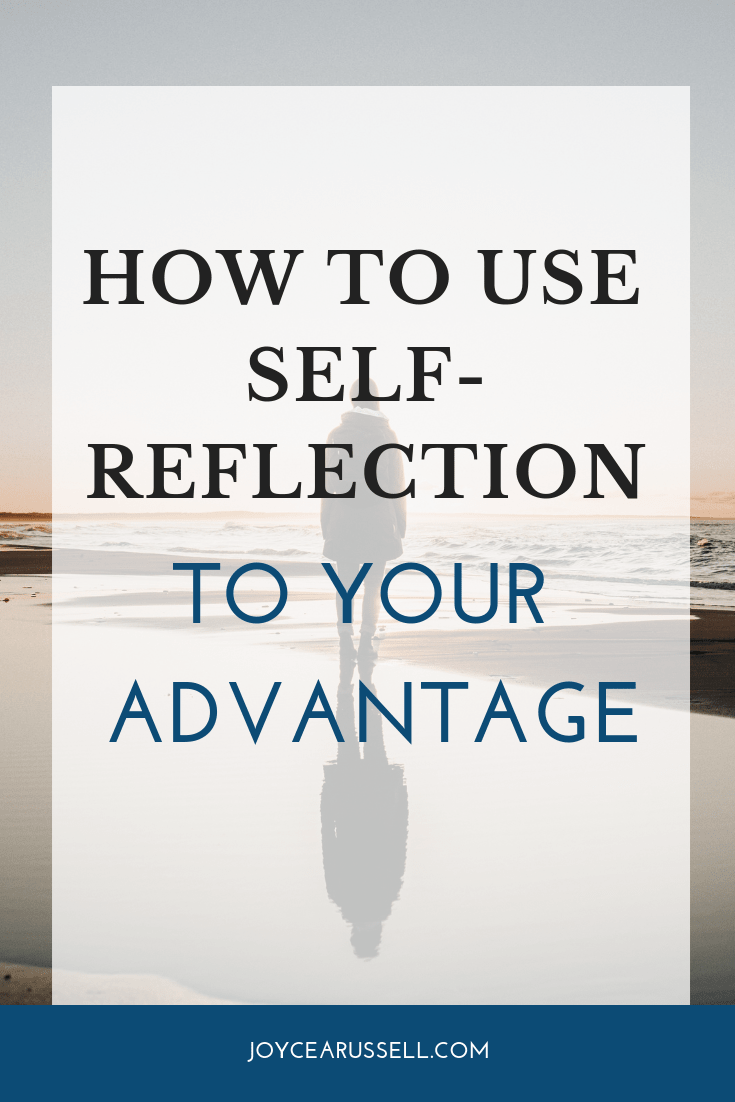Self-Reflection Can Make You Happier, More Successful, and Produce Inner Growth
Reflection is such a good method for looking at what you have accomplished and how. Personal or working life it doesn’t matter. Most of us have successes and goals met but we also shoulder some disappointment for those things we fell short in doing.
Self-reflection appears to be a dying art. People either feel they don’t have the time or that it’s a waste of time. Others are afraid to take a good, long, hard look at themselves. This is a mistake, because there is so much to be gained by examining yourself and your past.
Self-reflection provides many advantages that can make life easier:
1 | You learn about yourself. Most people are shockingly low in self-awareness. Some people are too busy, or at least they think they are. Others would prefer to distract themselves rather than spend one second in self-reflection.
However, there’s much to be learned by taking a few minutes each day and reviewing your day, the choices you made, the positives and the negatives.
When you know yourself, you can make better plans that utilize your strengths and avoid your weaknesses.
Recognizing your weaknesses and dealing with them is powerful. You can stop shooting yourself in the foot over and over.
2 | You learn from your past. If you look at the biggest mistakes you’ve made over your life, you’ll find they’re surprisingly similar. You may have either spent money you couldn’t afford, got involved with someone you shouldn’t, or made poor decisions to get away from stressful situations.
If you’ve never taken the time to review these mistakes, you’ve repeated them.
Reviewing the past can also help you to identify what works, and then you can advantageously repeat those actions.
3 |Take intelligent, thoughtful action. Many people are very action oriented and avoid “wasting” time on thinking too much. Rather than just jumping in with both feet, it can be incredibly helpful to spend some time thinking and strategizing.
Reflect on what you actually want to accomplish for yourself. Ask yourself a few questions and use the answers wisely.
“Sometimes you have to look back in order to understand the things that lie ahead.”
Graham Gibbs is an academic who studies self-reflection. He developed a six-step process to aid in self-reflection. This process can be used as a guide to help you get into the swing of things.
Use Mr. Gibbs’ process to examine your past and present:
What happened? This is simple enough. Describe the event to yourself. “I dropped out of college.”
What was I thinking and feeling? What were you thinking at the time? What did you think afterwards? “I was stressed and failing. I felt a sense of relief when I first dropped out, but then I felt a sense of dread and felt lost.”
What was good or bad about the experience? “I gained free time and my stress was relieved. But, now I don’t have a plan for my future and my job prospects are much more limited.”
How does this affect the various parts of my life? What does it say about me? “My personal and career development is stifled. My significant other is upset with me and threatening to leave. My parents kicked me out of the house and told me to find a job. This suggests that I am impulsive and handle stress poorly.”
What else could I have done? “Talked to a friend. Spoken to my professors. Sought professional help. Learned meditation or yoga. Lightened my course load.”
If this happened again, how would I handle it? “I would consider the long-term implications instead of just the short. I would get the help I need. I wouldn’t consider quitting to be a viable option.”
Although thinking about the past means looking back, there is value in it for moving your path forward. Reflection produces growth that makes each forward step more informed.
At the end of each day, or at least once a week, reflect on your experiences. When you stop to assess your response to things, you will learn valuable details about yourself. Consider the impact of your actions and take away lessons on how to act in the future.
You grow spiritually when you focus on the wellness of your soul. Spending time meditating on past highs and lows connects you to your true inner self.
Your growth as a friend and loved one is evident when you take time to recall others’ observations of you. The perspective of the special people in your life is valuable to your development. These are the people who walk hand in hand with you along the road of life.
When another birthday rolls around, compare your current self to your former self. Take some time to assess your evolution and identify any newfound strengths. It is exciting to see that growth from year to year.
Self-reflection is a useful tool that’s free to learn and apply. Imagine being able to leverage your strengths, minimize your weaknesses, and avoid repeating your mistakes.
You can make good use of those painful events from your past. Spend a few minutes each day and apply a little self-reflection. You’ll be happy with the results.
If you haven’t spent much time on reflection, the time is perfect right now. You still have time to really dig into how this year was for you. The good and the not so good. Now is the time to put these suggestions to work. See if identifying your strengths and using a rinse and repeat method for those actions, will move you toward your personal and professional goals in the coming New Year.
If you liked this post please share it with everyone you believe can benefit.

